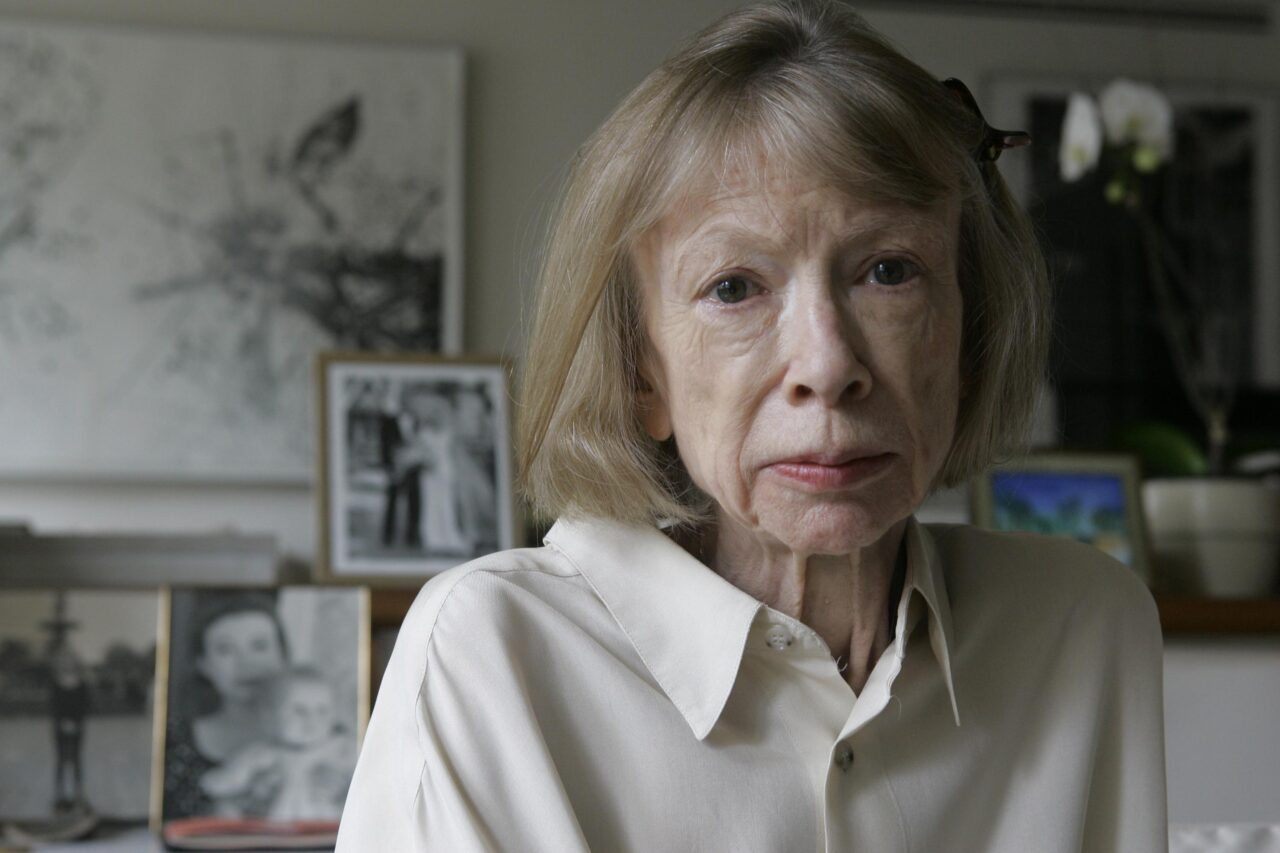When I was a young professor at the University of Illinois-Springfield back in the 70s, I felt the same ardent longing described by Holden Caulfield in The Catcher in the Rye, namely, the desire to have intense, candid, one-on-one conversations with the authors of books that knocked me out. I harbored this feeling in regard to two writers in particular: Joan Didion and Norman Mailer. In 1968, they each published a book that would thereafter be seen as their signature work, Didion’s Slouching Toward Bethlehem, a collection of essays on the “atomization” of contemporary life, of things falling apart, set largely in California and other warm climes (her writer husband, John Gregory Dunne, once observed that “Joan never writes about a place that isn’t hot”), and Mailer’s The Armies of the Night, an arresting account of his participation in the tumultuous anti-war protests in Washington, D.C. in fall 1967, told oddly, but unforgettably in the third person, as if “Norman Mailer,” the protestor arrested for crossing a picket line at the Pentagon, was a character in a novel. In the romantic American line, Didion and Mailer deployed aspects of their prickly and passionate personalities in these books as prisms to portray a nation in turmoil, while also challenging long-established, respected, (if somewhat stale) modes of “objective” writing. Both books implicitly made the claim that the character and involvement of the writer was an indispensable element in how events were depicted, characters revealed, stories told. Like two earlier romantics, Emily Dickinson and Walt Whitman, Didion and Mailer were polar opposites: she, restrained, reclusive and sardonic and possessed of a icepick rhetoric that recalls Emily’s poems; he, brash, self-involved and as fond of his long-winded operatic voice as was Walt. Both were profoundly influenced by Hemingway, and shared an appetite for characters who believed that “salvation lay in doomed and extreme commitments,” as Didion once put it.
I succeeded in meeting Mailer in the mid-seventies, and eventually became his archivist, friend, flunky, biographer, and eulogist. It was because of my friendship with him, and his with Didion, that the opportunity for a chat with her finally arose many years later when she agreed to speak at Mailer’s memorial service. I was one of the event’s organizers and discussed, via email, the evolving program with her and the other speakers, all of whom would speak at the Carnegie Hall event. On April 9, 2008, I spotted Didion as I was walking up and down the aisles of that vast, glorious auditorium greeting friends and admirers before the program began. Unaccompanied, and wearing large dark glasses, Didion sat inconspicuously near the end of one of the front rows. I walked over and introduced myself. She nodded and offered a limp hand. Immediately, I began gushing about my admiration for her work and how it had inspired the literature and journalism students I’d taught over the years. She nodded, almost imperceptibly, having heard such rapturous paise many times before. Then, remembering the occasion that had brought us together, I launched into a recitation of the brilliance of her 1979 review of Mailer’s other masterpiece, The Executioner’s Song. As I blathered on and on and on, I missed entirely that she was patting a sheaf of papers lying on the seat between us. Eventually, she interrupted me to say that she would be reading from that same review. By now it was only a few minutes to the program’s starting time, and when she saw me look at my watch, she made a gentle motion with her hands to leave, which I did, while silently cursing myself for going on like a madman and blowing any chance for a real conversation.
Didion, next after Don DeLillo, speaking in a thin voice, almost a whisper, read excerpts from her review, including the following passage, one which reflects her lifelong passion for climes of shimmering heat, landscapes where apathy, violence and paranoia jostle: “The voice heard in The Executioner’s Song is one heard often in life but only rarely in literature, the reason being that to truly know the West is to lack all will to write it down. The very subject of The Executioner’s Song is that vast emptiness at the center of the Western experience, a nihilism antithetical not only to literature but to most other forms of human endeavor, a dread so close to zero that human voices fade out, trail off, like skywriting.” There was a murmur in the crowd when Didion, speaking in a husky whisper, concluded: “I can think of no other writer who risked so much—and brought it home.” I looked for her after the ceremony, but she was gone—she lived a block away on West 58th Street.
My only other contact with her came a year or so later when I was writing my biography of Mailer. I had a question about whether she had ever had a discussion with him about the never-produced screenplay of Mailer’s Hollywood novel, The Deer Park, that she and her husband had written, and sent her a long involved email with my query. Her answer came back right away: “No,” she wrote.
Reprinted from Chicago Tribune, 12-29-21.
